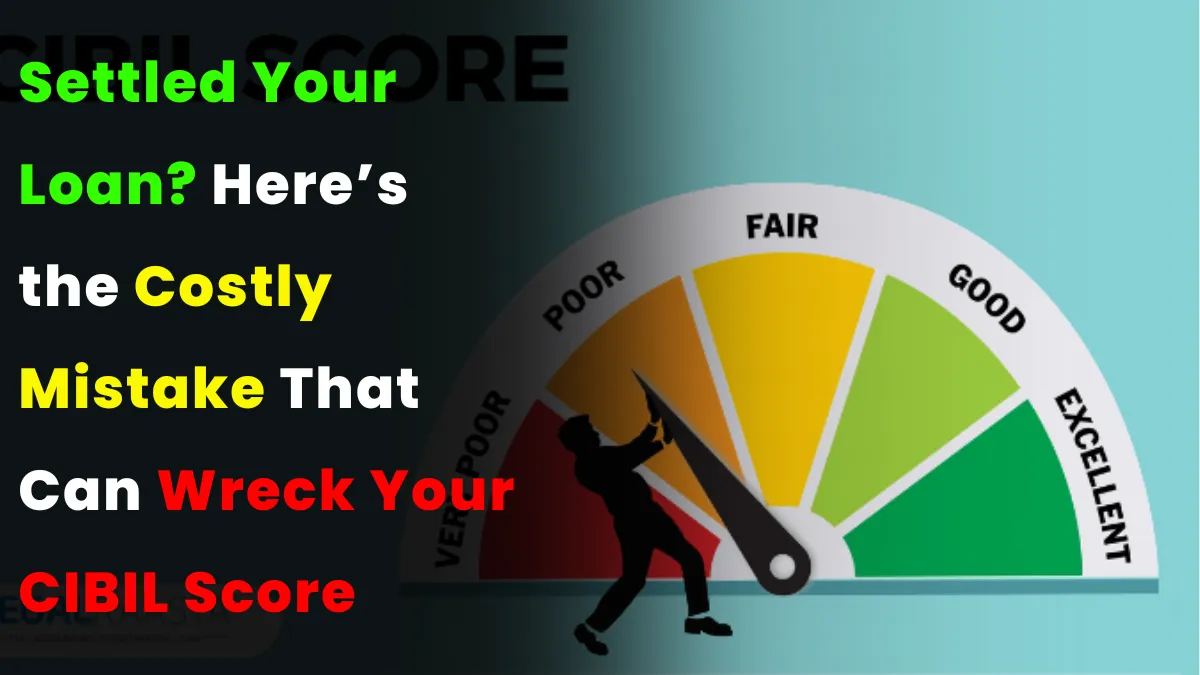Loan settlement may seem like relief when you’re drowning in debt, but it comes with serious long-term consequences—especially for your CIBIL score. Many borrowers wrongly assume that once a loan is marked as “settled,” their credit history is repaired. However, financial institutions treat a “settled” status as a negative remark, not a cleared loan. This single term can drop your credit score drastically and impact future loan approvals, credit card applications, or even home loan eligibility.
What Does ‘Settled’ Really Mean?
A loan is considered settled when the lender agrees to accept an amount lower than the actual outstanding, typically after financial hardship or prolonged default. While it stops recovery action, it is not a full loan repayment. The credit report reflects this settlement as a compromise, showing that the borrower did not pay the entire due amount. It stays on your credit record for up to 7 years, making lenders cautious about your repayment habits.
How This Affects Your CIBIL Score
A settled loan status can knock off 50 to 100 points or more from your CIBIL score. Even if you repay other loans on time, the negative flag remains unless corrected. Most banks and NBFCs may reject future credit applications or charge you a higher interest rate. Your score might recover gradually, but it requires time, consistent repayments, and no further defaults. Many unaware borrowers repeat the same mistake again by applying for new credit immediately, only to face rejection.
How to Repair After a Loan Settlement
If you’ve already settled a loan, your top priority should be to close it completely by repaying the remaining amount (if possible) and request the lender to update your status to “closed” instead of “settled.” Get a No Dues Certificate and confirm the status update in your credit report. If full repayment isn’t possible, at least maintain excellent credit habits going forward—paying bills and EMIs on time, avoiding minimum payments, and keeping your credit utilization low.
Conclusion: Loan settlement may feel like a quick fix, but if you don’t act wisely afterward, your CIBIL score could suffer for years. Always aim to convert a “settled” status to “closed” by repaying dues in full. Ignoring this step is the most common and damaging mistake that borrowers make after settlement.
Disclaimer: This article is for informational purposes only and does not constitute financial advice. Please consult a certified credit counselor or financial advisor before taking action related to your credit score or loan repayment strategy.
Read More:
- How ₹4,600 to ₹7,600 SIP Can Make You a Millionaire – Full Monthly Investment Calculator Revealed
- EPFO Pension Hike 2025: ₹8,000 Monthly Pension Starts This Month After ₹3,000 Increase – Check If You Qualify
- Bank of Baroda’s 444 Days FD Scheme Offers 7.75% Interest – Grab This Limited-Time Deal Now
- Canada GST Credit Coming Next Week – Who’s Eligible and How to Get It Quickly
- CRA 2025 Tax Rule Changes Announced – Here’s What Every Canadian Taxpayer Needs to Know

